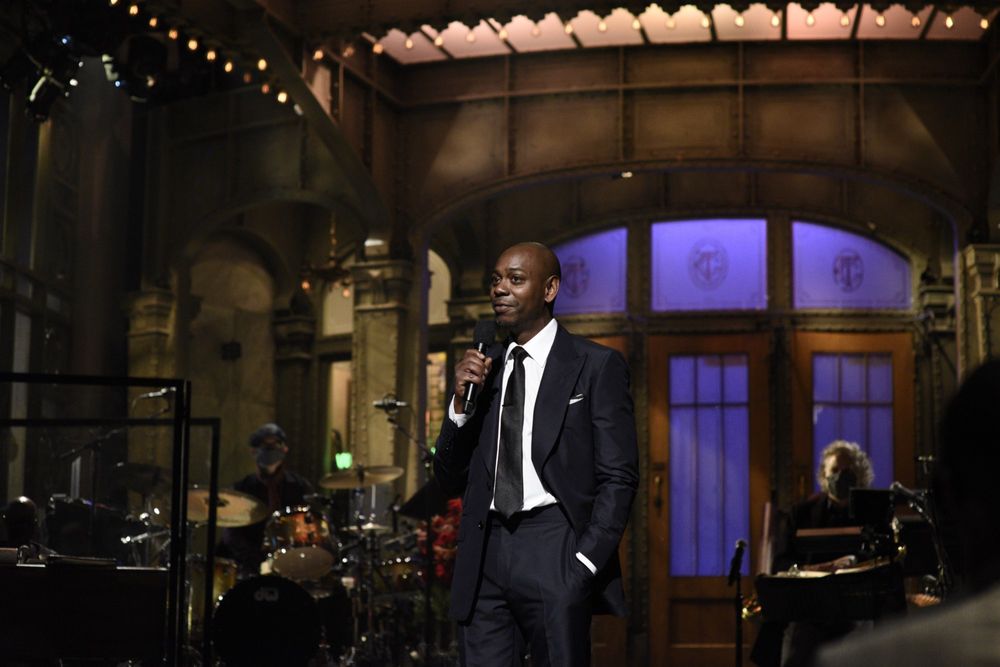In a vacuum, the story of Netflix pulling Chappelle’s Show from the platform at the request of its star and creator is a feel-good story. Of course it is. Dave Chappelle left Comedy Central when he felt he was creatively compromised. After a period of relative exile, he’s now making as much money with Netflix as he left on the table before and wields enough power and respect for the multibillion-dollar company to honor his wishes.
It’s a story of perseverance, betting on yourself, and leveraging your gifts to write your own legacy. Again, in a vacuum. But Chappelle, one of the most dissected and gravitational figures in pop culture, will never live in a vacuum. And in order to properly contextualize his power move — as related in “Unforgiven,” an 18-minute performance the comic uploaded to Instagram yesterday — we have to establish its deep irony.
For the past few years, since his return to mainstream consciousness, Chappelle has taken it upon himself to wave the flag of comedians’ right to tell any types of jokes they want, no matter whom they offend. To prove this point, Chappelle has peppered his stand-ups with jokes at the expense of the trans community. And as members of that community have voiced their anger and hurt over these jokes (which are among the least funny or creative in his arsenal), Chappelle has only responded with defiance and more disregard. He’s labeled the backlash as censorship or cancel culture instead of thoughtfully addressing the feelings and worries from a community continuously terrorized by prejudice and hate.
So it’s quite the plot twist that Chappelle is engaging in the same sort of behavior he’s railed against for the past few years. Sure, Chappelle’s initial anger over Chappelle’s Show being streamed on HBO Max and Netflix came from the fact that he wasn’t getting paid for it. But that ship has sailed. Chappelle will never see another dime from Chappelle’s Show. No, the reason he reached out to Netflix was, by his own words, over something other than finances:
I like working for Netflix because when all those bad things happened to me, that company didn’t even exist. And when I found out they were streaming Chappelle’s Show, I was furious. How could they not know?
So you know what I did? I called them, and I told them that this makes me feel bad. And you want to know what they did? They agreed that they would take it off their platform just so I could feel better. That’s why I fuck with Netflix. Because they paid me my money, they do what they say they’re going to do, and they went above and beyond what you could expect from a businessman. They did something just because they thought that I might think that they were wrong.
Read that again. Chappelle does words for a living. He didn’t say he called and asked for Netflix to remove the show because of money. He said he called to say “this makes me feel bad.” And Netflix responded by pulling the show “just so I could feel better.”
He understands what’s at the heart of the need for people to consider our feelings, and yet he doesn’t extend that same decency to people whose lives are on the line when he dehumanizes them.
Suddenly Chappelle understands the value of an entity ceasing doing a harmful thing simply because they want to honor someone’s feelings. As he mentioned, Netflix didn’t have to pull the show. They didn’t owe him anything. They did it out of respect. Chappelle said so himself. This is the exact same “cancel culture” Chappelle has pouted about: “You’re doing something harmful to me, and I want you to stop it and reckon with that decision.” He understands what’s at the heart of the need for people to consider our feelings, and yet he doesn’t extend that same decency to people whose lives are on the line when he dehumanizes them.
Objectively speaking, Chappelle has no right to complain about who chooses to air Chappelle’s Show and where they decide to air it. He signed a contract that gave his name away. And he also walked out on said contract, leaving the show up to the people in charge. Isn’t this objectivity the same logic that led the internet to find zero sympathy for Megan Thee Stallion when she went public with her contract woes? And the same logic that silenced Mo’Nique when she didn’t feel Netflix was valuing her worth? Yet, miraculously, those same people who leaped to moonlight as contract lawyers on Twitter, those same talent agents who thought Megan and Mo’Nique were in the wrong, suddenly understand that decency is more important than what’s written on a dotted line. Funny how that works.
Chappelle can no longer pretend that he doesn’t understand the motivations behind the people asking him to consider their lives when he writes jokes about them. When faced with his own grievances about a piece of comedy being disseminated to the public, he understood the merits of reckoning and resolution. Netflix capitulated to Chappelle’s requests out of respect. And really, that’s all it takes. Sadly, not everyone can find that same amount of consideration for the people who need it the most.
Read more: Why There’s Never Been a Funny Cancel-Culture Joke
